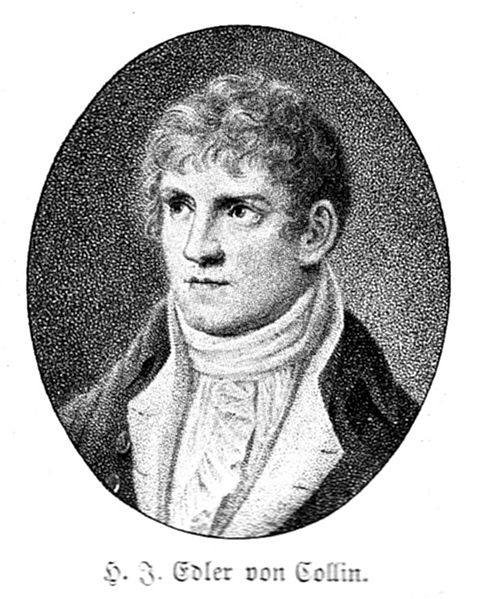Beethoven wrote his Coriolan Overture not for the Shakespeare play “Coriolanus” but for an 1804 play “Coriolan” by Heinrich Joseph von Collin. Both plays are based on the semi-mythic Roman general Coriolanus as profiled in Plutarch’s “Lives of the Noble Greeks and Romans.”
Besides writing poetry and drama, Heinrich Joseph von Collin was also employed as a Court Secretary in Vienna. Just one year younger than Beethoven, Collin was one of the dramatists who Beethoven hoped would write a libretto for his next opera.

Beethoven’s Coriolan Overture was performed at 2 private concerts in March 1807, and Collin’s play “Coriolan” was revived on 24 April 1807.
However, it's not clear if Beethoven wrote the overture for the revival or if the revival was prompted by the existence of the overture.
#Beethoven250 Day 202
Coriolan Overture (Opus 62), 1807
The legendary Riccardo Muti conducts the Vienna Philharmonic Orchestra.
In Collin’s play “Coriolan,” Coriolanus had previously led Rome in a victory against Volsci, but when he is rejected by his countrymen, the proud and defiant general defects. When Volsci decides to break the truce, Coriolanus now leads a battle against Rome.
Coriolanus is then beseeched by his mother, wife, and sons to stop the attack on Rome. As a tragic hero who must resolve this conflict within himself, Coriolanus (in Collin’s play) commits suicide. (In Shakespeare’s play, he is killed by Volscians for betraying them.)
Beethoven dramatizes the central emotional conflict of “Coriolan” by representing the protagonist with angry chords and restless agitation, and his pleading mother with a more lyrical and tender theme. The disintegrating ending is Coriolanus’s final resignation and death.
#Beethoven250 Day 202
Coriolan Overture (Opus 62), 1807
The great Roger Norrington conducts the NHK Symphony Orchestra.
Lewis Lockwood writes:
The rise of public symphonic concerts opened up opportunities to Beethoven to compose shorter works that could contrast with multimovement symphonies. Though opera overtures could serve this need, the genre was expanding. Thus the ‘concert overture’ was coming into being. It is not too much to say that [the Coriolan Overture] begins the tradition of such works, a tradition that would be taken up in the next generation by Mendelssohn and others, then developed into the programmatic symphonies of Berlioz, and, much later, the tone poems of Liszt and Strauss. — Beethoven, pp. 262–3.
#Beethoven250 Day 202
Coriolan Overture (Opus 62), 1807
The legendary Carlos Kleiber with the Bavarian State Orchestra in 1996.
It could be that Beethoven wrote the Coriolan Overture not for a performance of the play at all, but instead as a gesture for collaborating with Collin on an opera. Beethoven meant for the Overture to flatter Collin and to impress him with his ability to write dramatic music.
One of the opera projects that Beethoven and Collin explored was “Bradamante,” about a female knight with a magical lance. But Beethoven didn’t particularly like magic in opera, “because it has a soporific effect on feeling and reason,” he wrote. (Letters No. 175)
The more enticing of the opera projects that Beethoven and Collin worked on was Collin’s rewrite of “Macbeth.” Beethoven even sketched out some music with the description “Overture Macbeth, the chorus of witches comes in at once.”
Sounds like a great start!